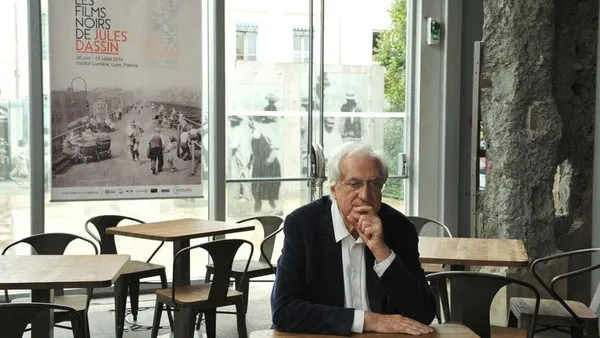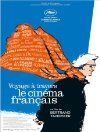Eye For Film >> Movies >> Journey Through French Cinema (2016) Film Review
Journey Through French Cinema
Reviewed by: Anne-Katrin Titze

Bertrand Tavernier's personal journey into cinema begins at a spot in Lyon, where the house stood in which Tavernier grew up and where his father hid Louis Aragon during the war. During a stay in a sanatorium, where little Bertrand was treated for tuberculosis, the six-year-old was first deeply impressed by a film - by Jacques Becker, it turns out.
He dedicates My Journey Through French Cinema (Voyage à Travers Le Cinéma Français), last night's Lumière Award winner, to two grand directors, Becker and Claude Sautet who bookend the documentary with their empathy and sense of community. Tavernier made me want to discover and re-discover everything they have done. The possessive pronoun in the original English title (My Journey Through French Cinema) when the film screened during the 54th New York Film Festival is significant. This film is not an encyclopedia entry but a living, breathing adventure ride into French cinema through the eyes and ears of the filmmaker.

Through informative clips, Tavernier explains the mastery and allure of Becker's work - how in Casque d'Or, for example, Simone Signoret enters the dance hall differently than everybody else or how the structure of Touchez Pas Au Grisbi can only be described as "organic and simple".
We follow young Tavernier to the Cinémathèque in Paris where he not only watches Josef von Sternberg's Macao with Robert Mitchum dubbed in Vietnamese, but also ends up rescuing together with his friends, two films by Edmond T Gréville - his first glimpse into the importance of film preservation.
Next come the drives with Jean-Pierre Melville around Paris and what it meant being assistant to Melville's first assistant, Volker Schlöndorff, for Léon Morin, prêtre. Schlöndorff in a clip comments on Melville's precision and that Quentin Tarantino called Le Doulos his favorite movie. Melville, more Bresson than William Wyler, in Tavernier's eyes, is next to a chapter on Eddie Constantine.
Tavernier brought Samuel Fuller to Jean-Luc Godard's Pierrot Le Fou, and we learn that Claude Sautet, who was also a great script doctor, got to see all of Tavernier's own films for a pre-release critique by the grandmaster. Tavernier's second "big shock" was seeing La Grande Illusion, which leads into a segment about Jean Renoir, his professional genius and personal shortcomings, including the Vichy letters, as described by those who knew him well, such as Jean Gabin.
A spotlight on the great actor, Gabin - from the war experience that turned his hair white overnight to a mini-study of the manifold and versatile ways he could get angry on screen - is followed by the musical belly of the documentary.
Two composers, Maurice Jaubert, who gave the sublime lyrical quality to Jean Vigo's L'Atalante and worked with René Clair, Julien Duvivier and Marcel Carné, and Hungarian-born composer Joseph Kosma, who was introduced to Jean Renoir by Jacques Prévert are highlighted by Tavernier.
When Yves Montand, almost indiscernibly, begins to sing in Les Portes De La Nuit, Les Feuilles Mortes, it made shivers run down my spine.
Reviewed on: 31 Jan 2017
















